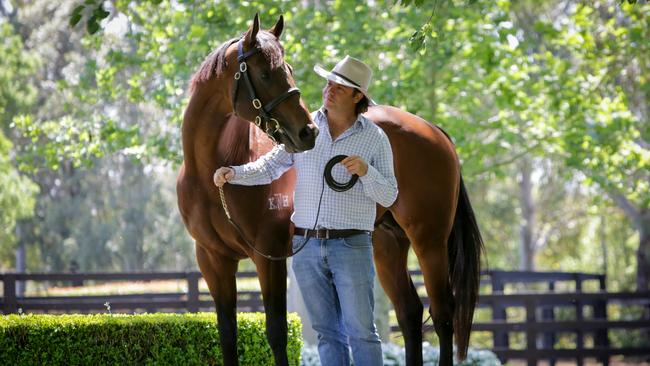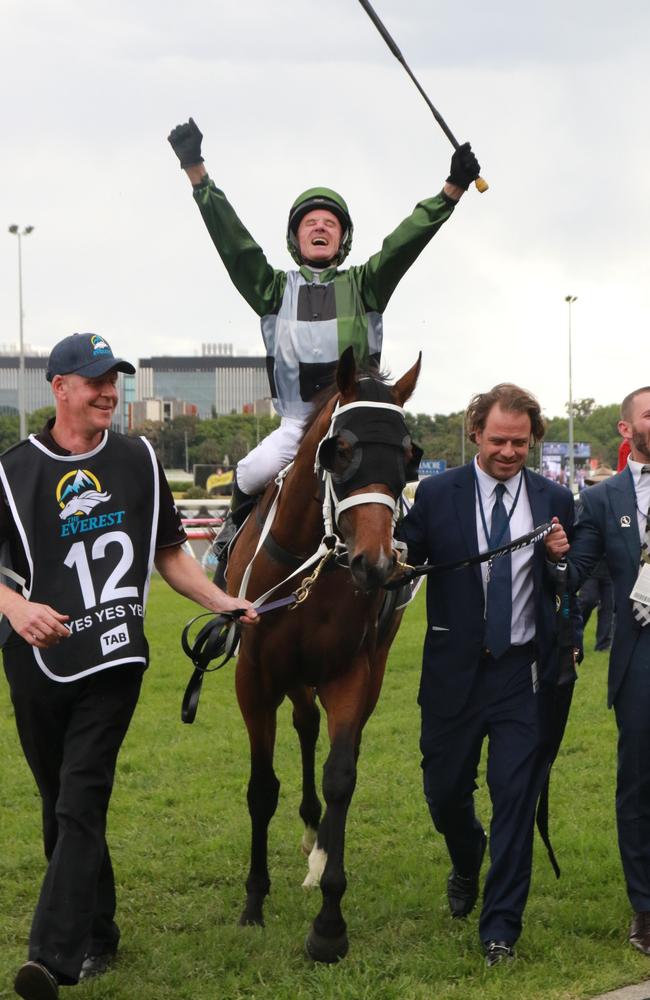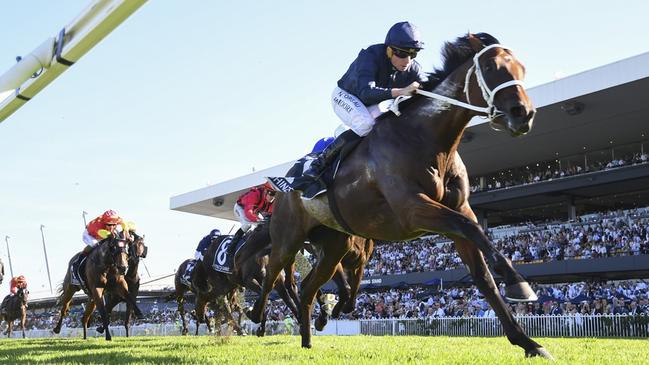Episode three of documentary The Race goes inside the megabucks business of breeding champions
Prize money for The Tab Everest is a whopping $20 million but there are even greater riches on offer to the owners of the winning horse. Watch episode three of The Race now.
Horse Racing
Don't miss out on the headlines from Horse Racing. Followed categories will be added to My News.
Prize money for The Tab Everest is a whopping $20 million but there are even greater riches on offer to the owners of the winning horse.
The third episode of The Race, The Daily Telegraph’s exclusive behind the scenes look at The Everest, delves into the huge money on offer to the owners of the winning horse and reveals how victory for the Coolmore colt Shinzo could turn it into a $50 million stallion.
In the previous six runnings of the world’s richest race on turf only one of the all male winners has not been gelded and that horse is making a fortune at stud.
Coolmore stud owned colt Yes, Yes, Yes stormed to victory from trainer Chris Waller’s slot in 2019 with Glen Boss in the saddle.
For Coolmore Australia principal Tom Magnier that was the dream scenario for a business that breeds stallions.

“We bought the horse with the intention of going to stud,” Mr Magnier said. But first it needed to prove itself in a major race – The Everest.
“A lot of people said that that‘s going to be very difficult up against seasoned sprinters,” Mr Magnier told The Race. “We went to the races that day and it was just was one of the most amazing days I’ve ever had at a racetrack.
“We had Glen Boss in the saddle. Glen was riding out of his skin at the time, and it just gave him an absolute peach of a ride.
“In the last couple of hundred metres he just flew and crossed the line. We‘d won an Everest and it was spine tingling, it was ultra exciting. There were scenes at a racetrack that I don’t think I’ve ever seen before, and it was just huge,” he said.
With an Everest victory under his belt Yes Yes Yes was put out to stud and has proved to be in high demand.

He covers more than 200 mares a season at $33,000 a pop to earn over $6.5 million a year – earning as much in a year at stud as he did in prize money for his whole racing career. If Shinzo wins on Saturday he will be on the same path.
And Yes, Yes, Yes’s progeny are also in high demand with owners and trainers who are actively searching for Everest winning pedigree.
He produced more than 100 foals in his first crop with the top selling colt selling for $450,000 at the Inglis Classic sale to Yes Bloodstock and Brae Sokolski who raced Yes, Yes, Yes and was looking for a repeat performance.
There are plenty of other links in the buyers of Yes, Yes, Yes foals. Triple Crown, who won the first two runnings of The Tab Everest with Redzel, bought a colt from dam Money Magic for $140,000 by the race’s third winner Yes, Yes, Yes.
Trainer Chris Waller, who has a slot in The Everest and won with Yes, Yes, Yes and Nature Strip, bought two of the foals for $420,000 and $150,000 with blood stock adviser Guy Mulcaster.

Trainer Bjorn Baker, who has Overpass running in this year’s The Everest, bought a Yes, Yes, Yes filly for $370,000.
Trainer John O’Shea, who had second favourite Lost and Running scratched on race morning two years ago, bought a filly for $320,000.
Legendary trainer Gai Waterhouse, who has two runners this year in her quest to finally lift The Everest trophy, paid $155,000 for a filly while Anthony Freedman, who trained The Everest runner-up Santa Ana Lane, purchased a Yes Yes Yes colt from Magic Millions for $250,000.
The Tab Everest has been won by geldings on six of its seven runs. But It could be a dream come true for a stallion like Buenos Noches, who cost just $40,000 as an Inglis Classic yearling and could have a long career at stud if he wins The Everest on October 14.
Originally published as Episode three of documentary The Race goes inside the megabucks business of breeding champions


